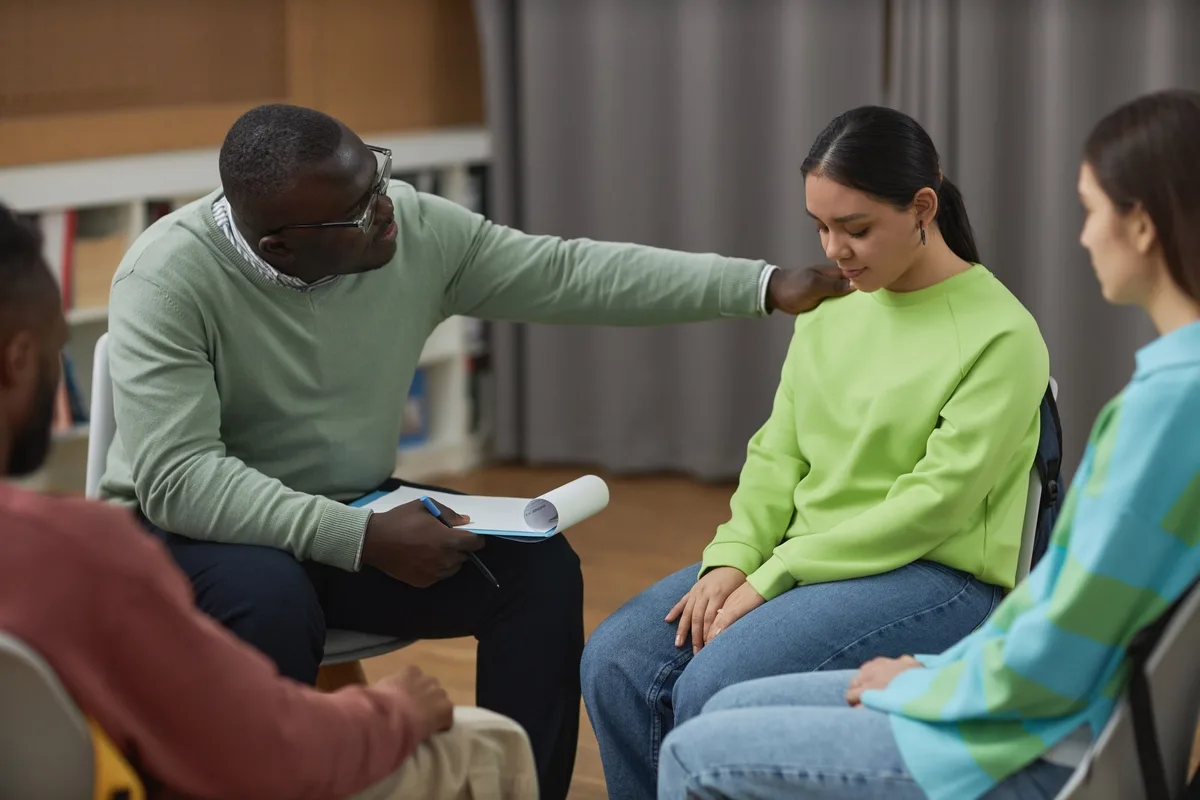24/7 Helpline:
(866) 899-111424/7 Helpline:
(866) 899-1114
Learn more about Bipolar Disorder Treatment centers in Trinity
Bipolar Disorder Treatment in Other Cities




Triad Therapy
Triad Therapy is an outpatient treatment specializing in mental illness and addiction issues. Servic...

Randolph Fellowship Home
Randolph Fellowship Home, located in Asheboro, North Carolina, is a nonprofit substance use disorder...

Daymark Recovery Services
Daymark Recovery Service, situated in Asheboro, North Carolina, is a reputable dual diagnosis behavi...

























































ASG Services
ASG Services is a private rehab located in Asheboro, North Carolina. ASG Services specializes in the...

Randolph Fellowship Home – Mangum House
Randolph Fellowship Home - Mangum House is a private rehab located in Asheboro, NC. Randolph Fellows...

New Beginnings Youth Facility
New Beginnings Youth Facility is a private rehab located in Ramseur, North Carolina. New Beginnings ...

ADS Alcohol & Drug Services
ADS Alcohol & Drug Services is a CARF-accredited substance abuse rehab center in Asheboro, NC that p...

Behavioral Associates of Asheboro
Behavioral Associates of Asheboro is a private rehab located in Asheboro, North Carolina. Behavioral...

AA – Alcoholics Anonymous
AA – Alcoholics Anonymous is a non-profit rehab located in Asheboro, North Carolina. AA – Alcoholics...

Randolph County Day Reporting Center
Randolph County Day Reporting Center is a public rehab located in Asheboro, North Carolina. Randolph...


























































Other Insurance Options

Sutter

Providence

PHCS Network

Oxford

Health Partners

Covered California

United Health Care

EmblemHealth

American Behavioral

Health Net

WellCare Health Plans

Group Health Incorporated

Medical Mutual of Ohio

Aetna

Choice Care Network

Optima

Cigna

Health Choice

Ambetter

Evernorth